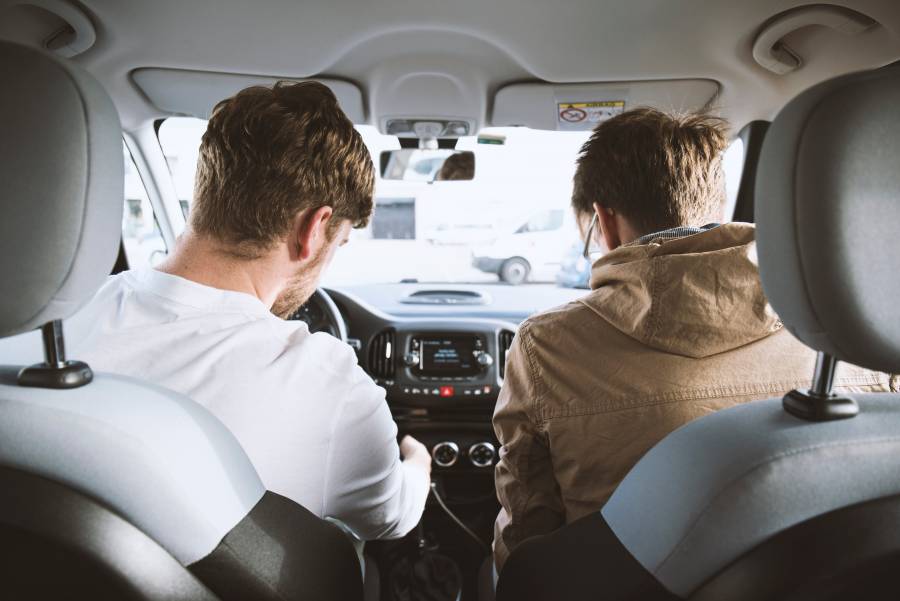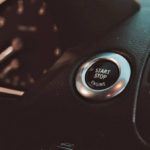Quick Navigation
The first time you start your car, the engine is cold. You will notice that the engine is louder than usual and sounds like it is running rougher than expected.
It is normal because the engine has to work harder to push out all of the extra unburned fuel in the cylinders when it is cold. But, that’s not all.

There are many factors as to why a car is loud when you first start it. Some parts of the car engine may not receive enough of the oil or fuel supply, worsened bearings, or others.
Keep reading this brief guide if you want to know all the reasons why your car is loud when you first start it.
Causes And Solutions Of Car Noises
However, not all the factors listed here are direct warnings for your car, but they need to be dealt with as soon as you notice them.
Do people ask why my car is loud when I first start it? So here is why.
1. Tapping Noise
Cause: Your car engine isn’t receiving sufficient oil.
Among the most simple and assumable factors behind your car being loud during the first start is the lack of proper oil supply to many car engine parts.
Thus, keeping your car dehydrated of oil for too long will cause the critical engine parts to stop working appropriately.
Your car is loud when you first start it because the engine is not receiving the required fuel.
Solution
There is a vital engine part called Turbocharger whose job is to increase the influx of air inside the engine to power the car.
The turbocharger requires fuel or oil to perform its tasks. So before this inductor becomes nonfunctional, you should perfectly lubricate the engine.
There is one thing to be careful of: use the best oil quality you can find.
Because if you don’t provide enough oil, the engine will become noisy, if the wrong oil is used, the noise erupts, and if the oil is polluted in any way, the engine can face failure.
2. Knocking Noise
Cause: Worsened bearings.
Are you hearing a knocking sound when you start your car and don’t know what that may be? That is a sound of trouble for your car.
Because the engine’s bearings may have been loosened and starting to make a knocking noise, this is a serious issue because if left unchecked for long, the bearing will come out, and the engine will become useless.
Hence, be cautious when you notice that your car is loud during the first start.
Solution
However, this will not be a cheap process, and you cannot do it by yourself (not generalizing but mostly).
You would have to go to a mechanic and let him do his job and be prepared; it will cost you more than average.
3. Buzzing Sound
Cause: Belt problem.
If you are hearing the sound of buzzing from within the car engine when you first start it, that may be the sign of a belt issue.
It means that you may have seen many revolving belts inside the engine that keep the engine operating correctly. These belts can break or get more extended than usual with passing the time.
Solution
It is something you should not get your hands on.
It is a critical part of the engine, and that is why the best course of action would be to change these belts and, more importantly, get them changed in a mechanic shop.
4. Screeching Noise
Cause: Belt issue, steering issue, breaking issue.
If your car is loud during the first start and sounds, more or less, the same way mentioned above in the belt problem, the issue might be related to steering or belt.
Screeching noise is never a pleasure to hear, whether from someone like humans or something like cars.
This sound indicates that either the breaks or the steering have trouble functioning correctly due to the same belt responsible for operating the car engine.

Solution
You can go for lubricating these belts to avoid corrosion for the short term, but that is only good for some time as sooner or later, you will need to do it again.
The long-term solution is simple; change the breaks or the belt. By doing so, you would be saving your car from costly aftermath.
5. Ticking Sound
Cause: Worsening Constant Velocity joints.
Another reason for the car being loud during the first start can be worsening constant velocity joints.
These joints are a medium between the steering and the tires; like when you rotate the steering, the CV joints rotate the wheels accordingly.
That means when these CV joints are starting to become useless and are worsening with time, it is evident that you notice fewer changes in the sounds than regular, like ticking sounds when you are turning your car.
How to avoid it?
Solution
You would have to see if the CV joints are entirely loosened or not. You can fix CV joint failure in the early stages, but if the problem escalates, you can’t fix it; you will have to change it.
It is a costly procedure and can cost you around 200$ to 800$, depending on whether you seek mechanical services or do it yourself.
6. Roaring Sound
Cause: Broken or damaged exhaust muffler.
If your car is loud while driving and you hear some growling sound from the back of your car and don’t know what it is, it is an exhaust muffler issue.
The exhaust’s job is to keep the unnecessary noises down, and when it is damaged, those noises will come and haunt you!
Solution
Not only is it bad for the car and its driver, but it is also a piece of bad news for the surroundings and environment because the CO is being let out without any interruption.
That is why you must take immediate action and change the exhaust muffler as soon as you can. Or better, take it to a mechanic if you can afford that and make him do the job.
There would be little room for any mistake that way.
7. Crackling Sound
Cause: Dieseling.
Sometimes, you may hear a crackling sound when turning off your car engine.
That’s because there is still some fuel inside the cylinder that keeps the engine on for some time and then turns off with a crackling sound.
Solution
This issue is mainly found in old cars and is rarely found nowadays.
You can avoid this by using high-quality diesel for your car, and you should use carbon removing solution to clean the engine from the inside.
The Bottom Line
When you first start your car, you may hear a loud noise. People would generally think this is the result of the car is cold.
However, many different reasons can make your car loud during the first start.
Lack of proper oil supply, worsened bearings, belt problem, damaged steering, and worsening constant velocity joints are a few reasons that can cause the car to be too loud when it first starts.
Minor issues, like oiling the engine, you can do at home or garage.
Primary and more severe issues like CV joint failure or others require expert insight, and you should take your car to a mechanic for fixing and avoiding any more problems.

Patrick started his love affair with cars in his childhood. Over the years, he claims a sturdy hold on his driving skills, along with a thorough understanding of cars. We can expect some interesting, holistic, and pleasurable blogs with his flair for writing and his love for cars.
Being a car enthusiast, Patrick has experience comprising of two decades in which he has ridden some of the meanest and strongest machines in the automotive industry. His previous avatars include an automotive professional, photographer, and journalist, and you will certainly experience the roundness of experience in his piece on this site.
In his second decade of reviewing cars and analyzing tools, Patrick is all set to give you convincing, reliable, and the latest information regarding what’s happening in the automotive industry. Currently, he owns a BMW Z3 but cannot get his eyes off Aston Martin DB5. He is a car enthusiast; he loves cooking and listening to music, especially jazz. Here are some of the pieces written by our ace author.






